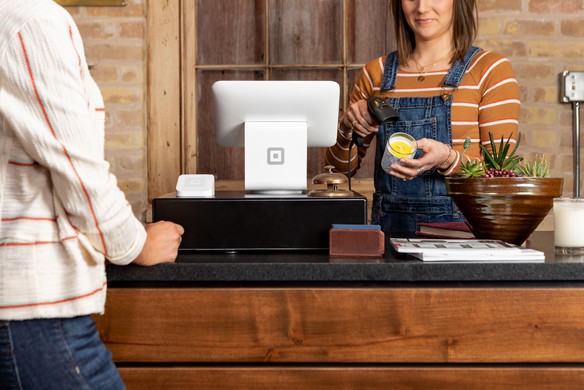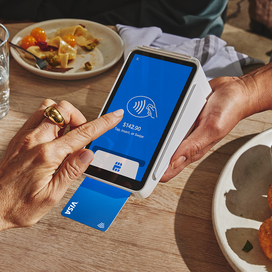Table of contents
Cash has long been the most traditional and popular form of payment, but as smartphones and instant payment opportunities have risen, cash use has started to decline.
If you’re a cash-only business, you might be faced with the dilemma of taking credit cards out of fear of missing out on sales from customers who don’t carry cash.
What is a cash-only business?
A cash-only business is simply a business that only accepts cash sales for its goods and services. That means no checks, debit cards, credit cards, or mobile payments.
It may be surprising to come across a cash-only business today, but there are still quite a few businesses that haven’t jumped on the credit card bandwagon.
Businesses such as farmers markets, coffee carts, local bars, personal chefs, or local health-food stores often operate exclusively on cash. These businesses generally have lower ticket sizes and taking only cash lets them avoid credit card and processing fees.
Do customers favor cash businesses?
People do carry less cash today than they have in the past. According to the Federal Reserve, the average person carries about $59 of cash at one time, an amount that has steadily decreased over the last 20 years.
One reason that people are carrying less cash is because it’s becoming easier and more convenient than ever before to use credit cards. With more businesses accepting credit cards, and some having moved to being card-only, the need to have cash on you at all times is less pressing.
Credit card companies have also added to the draw of using cards by offering rewards, including cash back and travel points, that give more incentives to use cards over cash.
It may also be deeper than that. Psychologists and behavioral economists have been studying something they call the pain of paying for the last ten years. This is the basic idea that some purchases hurt more than others — and the more painful the payment is, the less you want to make it. So paying with cash is harder emotionally because you’re handing over something physical, vs. when you’re paying with a credit card and it feels like a lighter purchase.
Are consumers using cards more often?
As part of our report on the current state of payments, we looked at sales transaction data from 2015 to 2019 to see how consumers are using cash and cards.
In 2015, consumers paid with cash for 46% of transactions under $20. In 2019, consumers paid with cash for only 37% of transactions under $20. That’s nearly a 10% decrease in the number of people nationwide using cash at Square businesses.
Since 2015, U.S. consumers have become increasingly reliant on credit cards for smaller and smaller transactions between $10 and $20.
Square transaction data also reveals that in 2015, half of consumers used their credit card for an $8 transaction. In 2019, half of consumers will use their credit card for a $4.50 purchase, a huge decrease in the tipping point.
So, while cash is not out yet, there have been significant decreases in its popularity as the go-to method for payments.
The cost of cash.
If transaction fees are the reason you are holding off on accepting credit cards, don’t forget that cash has a cost, too. There’s a fixed cost for accepting cash that most people don’t think about.
With cash, you have to consider the time cost of counting and reconciling cash drawers with your POS. And as wages increase, that cost rises.
Cash-only businesses also put themselves at a higher risk of theft, which can affect your business more than credit card fees.
Should my business take credit cards?
We found that 35 percent of consumers say that if a place at which they were considering spending their money didn’t accept credit cards, they would decide to go somewhere else instead; that percentage is higher amongst millennials and urbanites.
But deciding whether or not you want to take credit cards depends on the type of business you own. For businesses with larger ticket sizes like grocery stores, retailers, or restaurants, for example, credit card acceptance is often expected. For businesses with smaller ticket sizes, customers might not care as much.
What’s most important is that you meet your customers expectations. Learn how your customers value different kinds of payment by talking with them or doing research if you can.
By accepting all types of payments — credit cards, cash, and mobile payments — you’re more likely to make a sale with any customers who want to purchase from your business. But, ultimately, you have to make the best decision for your business. So before you decide, make sure you do your research and review your financials to determine the impact of introducing credit cards on your bottom line.
![]()












